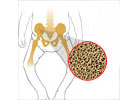A new study has revealed that delaying the clamping of the umbilical cord for at least three minutes in healthy newborns could protect them from iron deficiency.

Iron deficiency and iron deficiency anemia are major public health problems in young children around the world and are associated with poor neurodevelopment. Young children are at particular risk due to their high iron requirements during rapid growth.
While established research indicates that delayed cord clamping could prevent iron deficiency there are conflicting results regarding the risk of neonatal jaundice and other health problems.
So the authors led by Ola Andersson, consultant in neonatology at the Hospital of Halland in Sweden, and Magnus Domellöf, associate professor of pediatrics at Umeå University, investigated the effects of delayed cord clamping, compared to early clamping, on the iron status of infants at four months of age in a Swedish county hospital.
Four hundred full term infants born after low-risk pregnancies were involved in the study. Some had their umbilical cords clamped after at least three minutes and others had them clamped in less than ten seconds after delivery.
The results show that babies who experienced delayed clamping had better iron levels at four months of age and there were fewer cases of neonatal anemia.
Advertisement
The authors conclude that delayed cord clamping "should be considered as standard care for full term deliveries after uncomplicated pregnancies."
Advertisement
He says: "The balance of maternal risks and infant benefits of delayed cord clamping now clearly favors the child. How much more evidence is needed to convince obstetricians and midwives that it is worthwhile to wait for three minutes to allow for placental transfusion, even in developed countries?"
Source-Eurekalert













